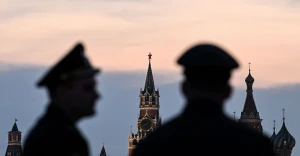
'One China' policy under threat: Switzerland wants to cooperate with Taiwan's parliament
The lower house of the Swiss parliament, the National Council, has voted to cooperate with the Taiwanese parliament. There are no official diplomatic relations between the countries
According to the Tages-Anzeiger, on Tuesday evening, the Swiss National Council (the lower house of Switzerland's highest legislative body) decided to strengthen its cooperation with the Taiwanese parliament and “deepen economic, political, scientific and cultural exchanges” with Taiwan.
The vote was 97 to 87, with 8 members abstaining. Socialists, Greens and Liberals voted almost unanimously.
The decision is final, as the National Council only wants to strengthen its own relations and does not need the approval of higher authorities, which are usually more conservative in foreign policy.
Switzerland still has trade and cultural ties with Taiwan, but does not maintain official diplomatic relations with it. The absence of such relations is a consequence of the so-called 'one China' policy that China demands from all other countries.
The 'one China' policy is that there is only one 'China,' which is personified by the communist People's Republic of China – and that it (in fact) includes democratic Taiwan. All states wishing to establish diplomatic relations with China must recognize this premise in principle. This is also what guides Switzerland's foreign policy.
As a result, Switzerland does not send an ambassador to Taiwan and there are no reciprocal official visits between members of the Federal Council (the upper house of parliament) and Taiwanese ministers.
It is this Swiss 'one China' policy that the National Council's decision violates.
The resolution was authored by MP Fabian Molina. According to him, the island with 23 million inhabitants is Switzerland's fifth most important trading partner in Asia and, given the growing polarization between the US and China, it would be wise for Switzerland to diversify its foreign trade strategy. “Democracies should support each other” and the parliament should not “allow China to interfere in its sovereign decisions,” Molina told the Council.
Franz Grüter, Vice President of the National Council and Chairman of the Foreign Affairs Committee of the Swiss Parliament, disagrees: since Switzerland does not recognize Taiwan as an independent state, the National Council should not maintain official relations with the Parliament and this decision of the National Council could have “negative consequences” for economic cooperation with China.
China traditionally reacts sharply to any signs of rapprochement with Taiwan. When five members of the National People's Congress made a private trip to Taiwan in February, the Chinese embassy reacted with a strong communiqué against this “interference in internal affairs.” The visit had already violated the one-China policy, the embassy wrote at the time.
This time, Chinese diplomats also interpreted the parliamentarians' decision as a denunciation of Switzerland's official one-China policy: on the eve of the decision, Franz Grüter, vice president of the National Council, contacted the Chinese embassy in Bern himself.
The Council's leadership insists that the resolution does not call into question Switzerland's position on the 'one China' policy. On the contrary, it is about promoting democracy, peace and stability, which are the fundamental basis of Swiss foreign policy: “It is therefore legitimate for the National Council to wish to use parliamentary diplomacy to promote these values.”
-
Chinese Ambassador Wu Jianghao warned Japanese leaders that their visit to Taiwan would be equated with crossing the 'red line.'
-
In recent years, Beijing has been pursuing a policy of diplomatic isolation of Taiwan, forcing other countries to recognize it as part of 'one China,' and has repeatedly threatened to invade.
-
The very next day after Emmanuel Macron's visit, China launched a large-scale military exercise around Taiwan, practicing a missile attack and encirclement of the island. The drills were a response to Taiwanese President Tsai Ing-wen's 10-day diplomatic tour of Central America and meetings with US officials in California.
- News














































